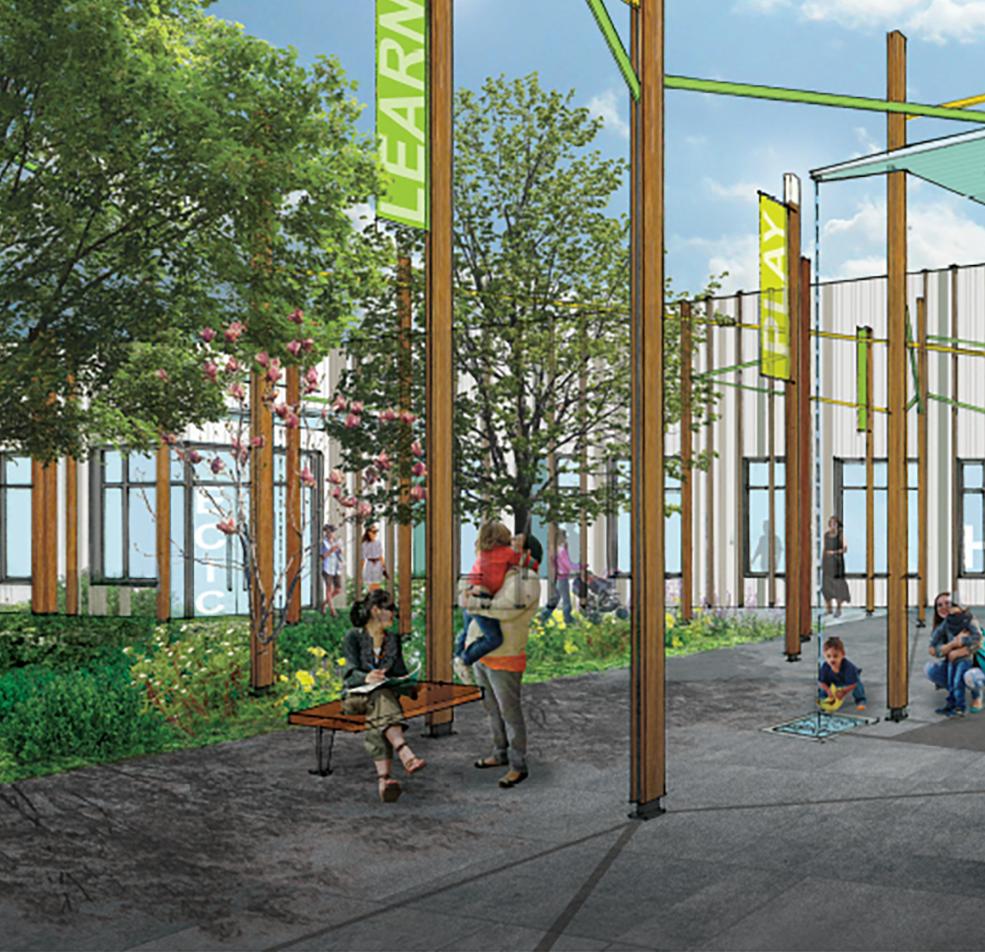
3 minute read
Strategies
The Critical Need for Collaboration
Design Team Construction Team Maintenance & Operations Team


architects engineers
contractors subcontractors management faculty custodial
The significance of children’s health vulnerabilities presents both a challenge and opportunity for the HWCEC-ECIC, as it requires open collaboration and heightened caution throughout all stages of the project. This preparation begins during initial phases of design, and is critical to maintain through construction and in the long-term use and operation of the building. However, with persistent dedication we can create a center that not only improves health conditions for children and faculty on a daily basis, but also becomes a model for healthier education centers across the state, and beyond.
“It Takes a Village to Raise a Child”
Designing Healthier Environments
Creating a healthier space for children first begins at the design and planning stages. The design team’s primary roles include the following: • Identifying significant points of impact • Evaluating products and materials • Designing for indoor environment and air quality • Anticipating use and maintenance • Specifying product options and performance requirements • Construction oversight and communication

Helen R. Walton Children’s Enrichment Center and Early Childhood Initiatives Center
Healthy Design Strategies Supplement
HWCEC Healthy Project Guide | Resources
25
More information and tools for implementing these strategies can be found in the forthcoming supplemental guide, Healthy Design Strategies.
Building Healthier Environments
The construction team then plays a pivotal role in carrying out the health initiatives set forth in the design stage, and in managing environmental conditions throughout the duration of the project. Their responsibilities include: • Commissioning processes, coordinating design initiatives and performance verification • Scheduling timeline and order of operations for children’s health sensitivities • Site management and protection • Building material sourcing, handling, and documentation • Air quality management • Preparing for occupancy

Helen R. Walton Children’s Enrichment Center and Early Childhood Initiatives Center
Healthy Construction Strategies Supplement
HWCEC Healthy Project Guide | Resources
26
More information and tools for implementing these strategies can be found in the forthcoming supplemental guide, Healthy Construction Strategies.
Maintaining Healthier Environments
Maintaining a healthy environment then becomes an ongoing task throughout the life of the building. From classroom furnishings, to art supplies, to cleaning products, all materials should continue being evaluated for their affect on children’s health. The maintenance and operations team thus has the continuing responsibilities including:
Management, coordination and training of project health initiatives Evaluation and screening of furnishings and supplies Custodial practices for maintaining clean and sanitary environments without the use of toxic chemicals Maintaining building systems for improved air quality and environmental conditions

Helen R. Walton Children’s Enrichment Center and Early Childhood Initiatives Center
Healthy Operation and Maintenance Strategies Supplement
HWCEC Healthy Project Guide | Resources
27
More information and tools for implementing these strategies can be found in the forthcoming supplemental guide, Healthy Operation and Maintenance Strategies.
Elevating the Standards for Children’s Health


Resources
Resources




